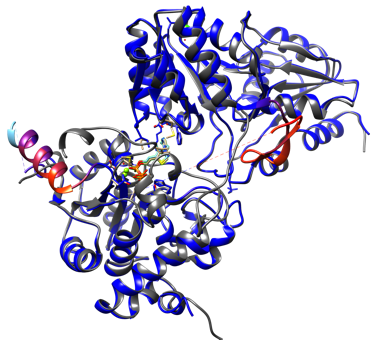Prof. Groves partner in consortium that receives H2020 Marie Curie ETN grant
Prof. Matthew Groves from the Groningen Research Institute of Pharmacy (GRIP) is partner in a consortium that has been awarded a H2020 Marie Curie ETN grant. The grant of EUR 3.2 million is for the MepAnti project, which aims to tackle the antimicrobial resistance problem by targeting enzymes of the methylerythritol phosphate pathway.
Antimicrobial resistance is a serious global health problem and, at present, there is no inter-institutional and interdisciplinary consortium explicitly focused on the discovery and development of novel anti-infective agents. The MepAnti consortium consists of nine academic partners and seven non-academic partners. The Helmholtz Institute for Pharmaceutical Research Saarland is coordinator. The consortium aims to go beyond the state-of-the-art in the anti-infective field by tackling the attractive and underexplored enzymes from the 2C-methyl-D-erythritol 4-phosphate (MEP) pathway.
Prof. Groves receives EUR 265,000 for his part in the project. He will provide structural biology and biophysical expertise, with a focus on the first and rate-limiting step catalyzed by DXS.

More news
-
17 February 2026
The long search for new physics
-
10 February 2026
Why only a small number of planets are suitable for life
